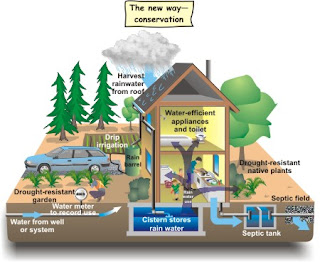Rise in unplanned urbanization has affected the cultural and environmental look of Kathmandu. The difference between Kathmandu within two decades shows drastic changes, with high population growth, environmental degradation and unemployment.
Today there is no pride in calling ourselves the citizens of Kathmandu, the only Metropolitan City in Nepal. However, there are few hope if the so called educated people take actions against the unmanaged Kathmandu. There are few Eco-Homes which are contributing to clean and green environment. Even Astra Development Network has been designing for the construction of eco-friendly housing community in Bal Kumari for Westar Properties.
This community will have 215 apartments in four towers and will include a decentralized waste water treatment plant, rainwater harvesting, groundwater recharge and solar electrification of its common areas.
Grey water or domestic waste water collected from sinks, showers and laundry will be treated in a constructed wetland - an artificially created habitat for natural filtration of effluents. This treated grey water will then be re-used for the purpose of gardening and toilet flushing.
The Government should enforce law and regulations for waste water treatment. With the customer demand, Government should act on providing incentives to install DEWATS. If we care about sustainability, actions should be taken now. Otherwise, it is going to be too late to even regret.
Today there is no pride in calling ourselves the citizens of Kathmandu, the only Metropolitan City in Nepal. However, there are few hope if the so called educated people take actions against the unmanaged Kathmandu. There are few Eco-Homes which are contributing to clean and green environment. Even Astra Development Network has been designing for the construction of eco-friendly housing community in Bal Kumari for Westar Properties.
This community will have 215 apartments in four towers and will include a decentralized waste water treatment plant, rainwater harvesting, groundwater recharge and solar electrification of its common areas.
Grey water or domestic waste water collected from sinks, showers and laundry will be treated in a constructed wetland - an artificially created habitat for natural filtration of effluents. This treated grey water will then be re-used for the purpose of gardening and toilet flushing.
The Government should enforce law and regulations for waste water treatment. With the customer demand, Government should act on providing incentives to install DEWATS. If we care about sustainability, actions should be taken now. Otherwise, it is going to be too late to even regret.





